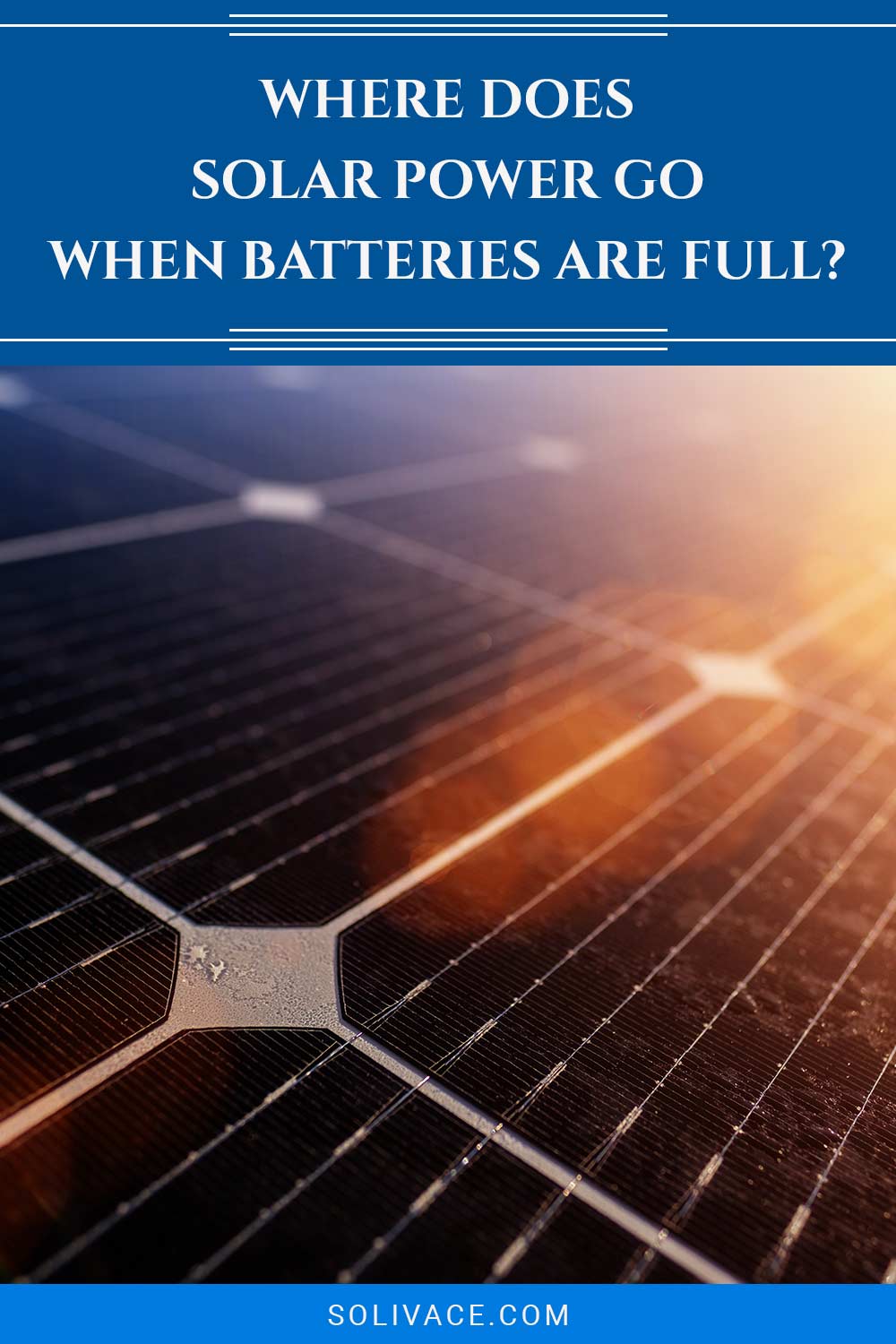Where Does Solar Power Go When Batteries Are Full?
We may earn commissions for purchases made through links on our site. Learn more on our about us page.
When batteries connected to your solar system fill up, your system either feeds into the grid or stops altogether. When you are connected to a grid, your system keeps generating and instead feeds into it when you can no longer gather that power.
If you are not connected, the system stops altogether. However, your solar panels still have to sit in the sun after turning off. Keep reading to find out more about solar power storage and what happens with your system when you fill up your batteries.

How Do Solar Panels Get Rid of Excess Power?
Solar Panels do not get rid of excess power necessarily as it all gets used. This is because most solar panels connected to homes, especially in cities, are connected to the utility grid. This grid usually powers large sections in a city around your area.
When you have excess power from your solar panel, it will feed into the grid. This benefits the entire neighborhood, keeps costs down and helps the environment.
However, excess power often does not occur except on hot summer days. Solar panels are usually installed to give a house the exact amount of power it needs and optimize its use, but when there is excess, it is used to benefit everyone.
What Happens when Batteries Reach Full Charge?
When your solar power batteries reach full charge, they will simply stop absorbing power from your solar system. Batteries recognize when they are full and will stop accepting more charges. This means your batteries are safe even if you are full up.
The solar panels will keep generating power, however. Because they will not go into your batteries, they will go elsewhere. But, again, this means that the charge will go into the grid, and you will receive credit on your next power bill, so this is good news.
What Happens if the Batteries are Fully Charged, and the Sun’s Intensity gets too Large?
If the batteries reach full charge and the sun gets extremely hot, your batteries are actually better off. As strange as it sounds, having the sun continually feeding into your batteries, especially on hot days, benefits you and the batteries.
Maintaining a battery’s life is often helped by keeping them fully charged regularly and never completely emptying them. So, on hot days, you could actually be maintaining your battery life in the long run. But, of course, any excess beyond that will once again go into the grid.
Can Panels Suffer Damage This Way?
Solar panels will not suffer from excess energy or too hot of days because it is not possible. In terms of ‘excess’ energy, that is simply not how electricity works. If you are connected to the grid, any energy not being used by you or your batteries will go to it.
However, if you are not connected to the grid and are full up, the solar panels will stop creating electricity. When it has nowhere to go, it stops being made. Meaning this will not damage your solar panels.
Solar panels are also built to sustain very high temperatures, up to 150 degrees Fahrenheit. Direct sunlight and heat actually benefit your solar panel system as it helps it generate more power quickly.
Does the Extra Energy Gets Stored?
The extra energy produced by solar panels is not stored unless you have batteries. If you have batteries, the solar panels will continue to generate power to fill those up and keep your systems running. However, anything beyond that will not be stored.
Again, if you are connected to the grid, the solar panels will switch over and begin to feed power into it. If not, your solar panels will simply stop producing electricity, meaning there will be no extra energy.
Final Thoughts on Where Does Solar Power Go When Batteries Are Full
Solar power systems are designed for the average person to be able to use them easily. This means you should not have to worry about them constantly. They are designed to deal with no longer needing power and what to do with it.
They are designed to sit in the sun and distribute power. Trust your system, and do not worry about what is happening with them in this way. Buy and hook up some batteries if you want to store more energy. If not, help your neighborhood and let your system feed into it.



Leave a Reply
You must be logged in to post a comment.